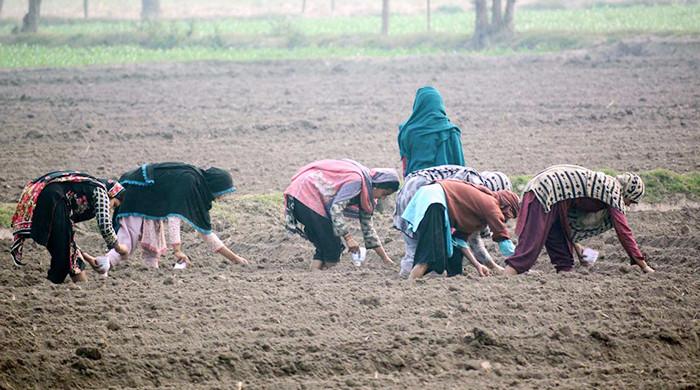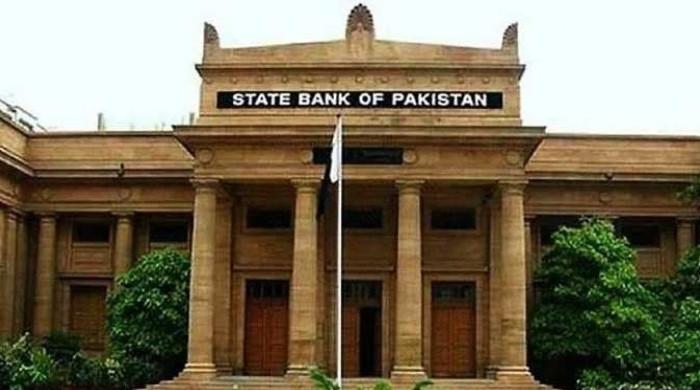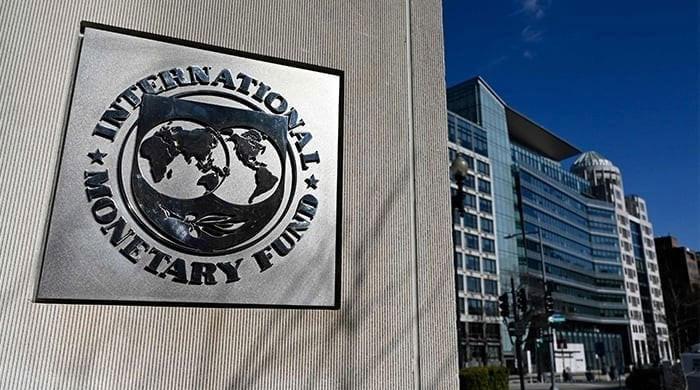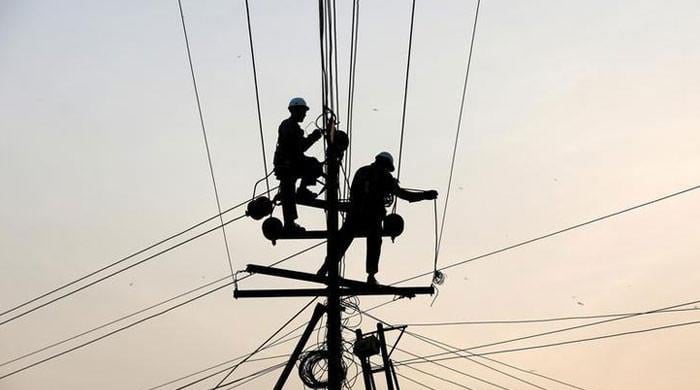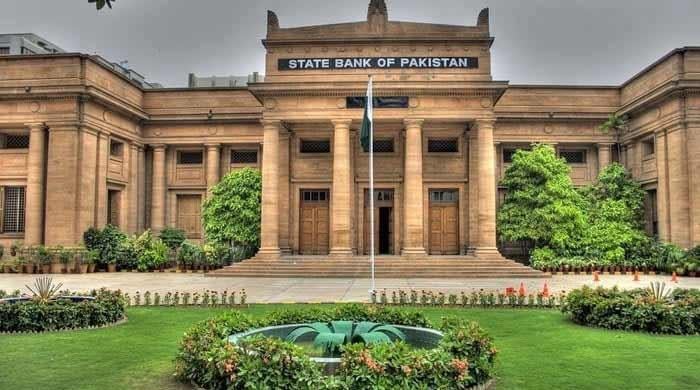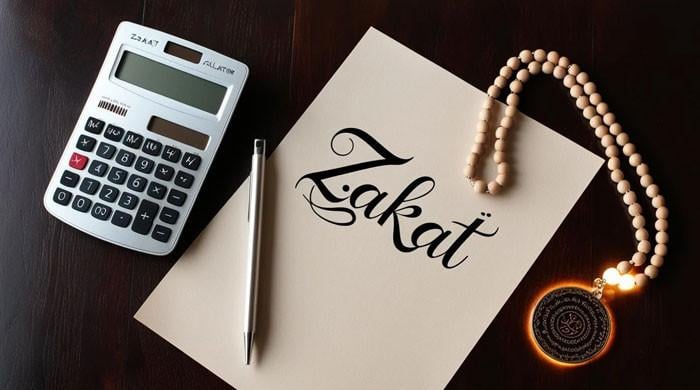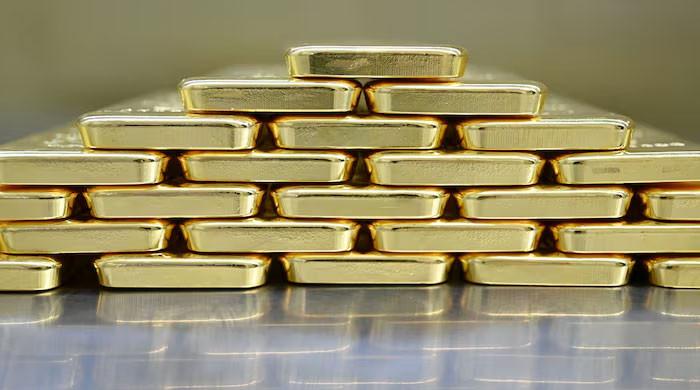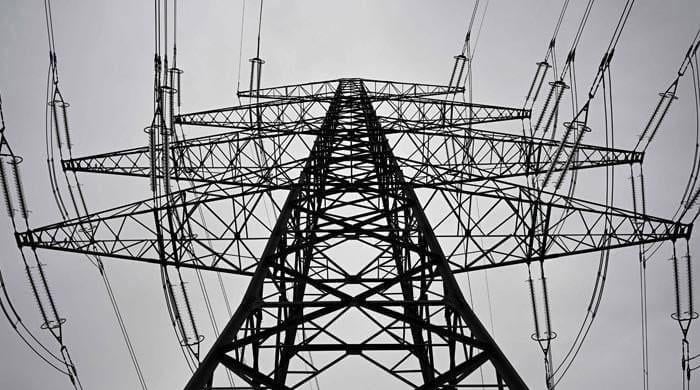State Bank of Pakistan decides to maintain policy rate at 7%
Central bank revises growth target to around 3% from slightly above 2% for FY21
March 19, 2021
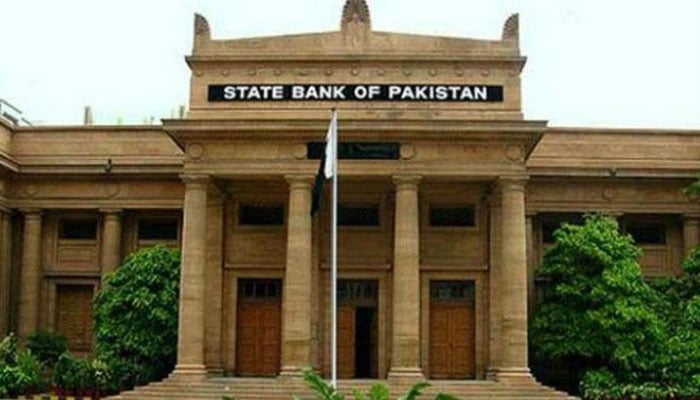
- State Bank of Pakistan decides to maintain policy rate at 7% to support economic recovery.
- Central bank revises growth target to around 3% from slightly above 2% for FY21.
- "Inflation should fall to the 5-7% target range over the medium-term" says SBP Monetary Policy Committee.
The State Bank of Pakistan on Friday announced the policy rate will be maintained at 7% in a bid to support economic recovery.
The decision was taken at a meeting of the Monetary Policy Committee (MPC) today, following which a statement was issued by the central bank.
The committee noted that the "current stance of monetary policy remains appropriate to support economic recovery while keeping inflation expectations well-anchored and maintaining financial stability".
SBP said that the committee reviewed the recent rise in inflation and concluded it was "primarily driven by supply side factors and saw little signs of demand led inflation".
The central bank committee expects that as this "temporary increase in inflation", that is a by-product of "administered prices" subsides, "inflation should fall to the 5-7% target range over the medium-term".
It said that in the absence of "unforeseen developments", it is expected the monetary policy settings to "remain broadly unchanged in the near term".
The MPC foresaw that as economic recovery stabilises and makes a return to full capacity possible, the policy rate in the future will be "measured and gradual to achieve mildly positive real rates".
Growth ahead
The statement said that the growth in FY21, "while still modest, at around 3% [...] is now projected to be higher than previously anticipated due to improved prospects for manufacturing and reflecting in part the monetary and fiscal stimulus provided during COVID".
Inflation ahead
The SBP further noted that "recent inflation out-turns have been volatile, with the lowest reading on headline inflation in more than two years in January 2021 followed by a sharp rise in February".
According to SBP estimates, the recent increase in electricity tariffs and sugar and wheat prices accounts for about 1½ percentage points of the 3 percentage point increase in inflation between the January and February out-turns.
"The recent increase in electricity prices will continue to manifest in headline numbers in coming months, keeping average inflation in FY21 close to the upper end of the previously announced range of 7-9%," said the statement.
Risks to growth, inflation
The MPC also took stock of the factors which pose a threat to the outlook of growth and inflation.
On the growth front, it said that inspite of the recent momentum, risks prevail due to the recent emergence of the third wave of the coronavirus pandemic, just as Pakistan has begun its vaccination drive.
In terms of the risks to the inflation rate, the committee noted that ahead of the budget this summer, any wage negotiations and tax measures "could add further supply-side shocks".
"In addition, optimism about a stronger US-led world recovery this year is translating into higher international commodity prices, including both food and oil, which could continue to feed into domestic inflation," the SBP statement said.
Analysts predicted rate would hold
Analysts had forecast that SBP is likely to keep its policy rate on hold this week to continue to support an economy struggling with surging coronavirus cases, and wary of increasing inflationary pressures, according to a report on The News.
The central bank left interest rates unchanged at 7% for a third consecutive meeting in January after slashing them five times last year by a total of 625 basis points (bps).
Analysts had also predicted that the rate would remain steady in view of the forward guidance given by the MPC on the monetary policy.
The policymakers, in the last statement, advised rates should be kept on hold in the near term until there are clear signs that the economy is recovering.




